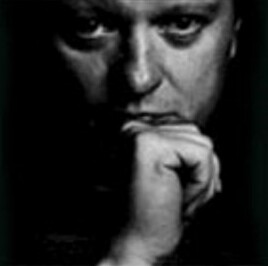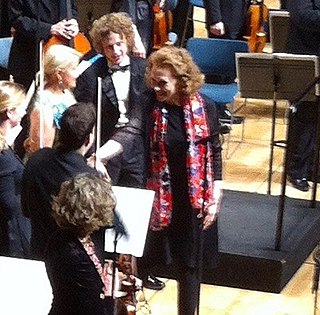Orchidée is software developed by IRCAM as a computer-aided orchestration tool. It is a MATLAB-based application that communicates with traditional computer-aided composition environments through Open Sound Control messages. [1] This means that it can be effectively controlled from programs like Max/MSP or OpenMusic. It was developed by Grégoire Carpentier and Damien Tardieu during their PhDs at IRCAM, with the help and supervision of composer Yan Maresz. [2] A recent example of its use for orchestral composition were in Jonathan Harvey's Speakings , premiered in 2008, in which speech was analyzed and computed to provide orchestral combinations for the composer. Given an input target sound, Orchidée creates a musical score which imitates the sound using a mixture of traditional instruments. It then searches within a large instrument sample database to combinations of sounds that perceptually match the target. [3] The application takes into account complex combinatorial possibilities, considering virtually infinite sets of different sounds created by the orchestra. It also considers musical attributes such as instruments and dynamics, and perceptual attributes as brightness and roughness. [3] For example, in Speakings, a mantra (Oh/Ah/Hum) was analyzed and imputed into Orchidée, which in turn generated different possibilities for orchestration. This mantra was then developed throughout the piece using such possibilities.

IRCAM is a French institute for science about music and sound and avant garde electro-acoustical art music. It is situated next to, and is organisationally linked with, the Centre Georges Pompidou in Paris. The extension of the building was designed by Renzo Piano and Richard Rogers. Much of the institute is located underground, beneath the fountain to the east of the buildings.

MATLAB is a multi-paradigm numerical computing environment and proprietary programming language developed by MathWorks. MATLAB allows matrix manipulations, plotting of functions and data, implementation of algorithms, creation of user interfaces, and interfacing with programs written in other languages, including C, C++, C#, Java, Fortran and Python.
Open Sound Control (OSC) is a protocol for networking sound synthesizers, computers, and other multimedia devices for purposes such as musical performance or show control. OSC's advantages include interoperability, accuracy, flexibility and enhanced organization and documentation.
Other musical works using Orchidée:
- Daniel Fígols Cuevas, Kaala, 2012, CNSMDP, Paris.
- Marc Garcia Vitoria, Mimesis, 2011, Paris.
- Alec Hall, Striped Noise, New York, 2011.
- Javier Torres Maldonado, Un posible dia, Paris, 2011.
- Marc Garcia Vitoria, The P Extensions, 2010, Geneva.
- Christopher Trapani, Cognitive Consonance, Le 104, 2010, Paris.
- Christopher Trapani, Westering, Carneghie Hall, New York, 2010.
- Marco Suarez Cifuentes, Poetry for //dark-/ dolls, 2009, IRCAM, Paris.
- Fernando Villanueva Carretero, Bukowski Madrigals, 2009, IRCAM, Paris.
- Kenji Sakai, Astral/Chromoprojection, 2009, IRCAM, Paris.
- Gérard Buquet, L'Astre Echevelée, 2009, IRCAM, Paris.
- Miguel Farías, Mambo Lines, 2011, Geneva.

Javier Torres Maldonado is a Mexican composer internationally recognized for, mostly, his orchestral, chamber, vocal and electro-acoustic works.
Christopher Trapani is an American composer of contemporary classical music. He is a 2019 Guggenheim Fellow. In 2007 he won the Gaudeamus Award of the Dutch Gaudeamus Foundation.
Gérard Buquet is a tubist, conductor and composer, who was born in France.






